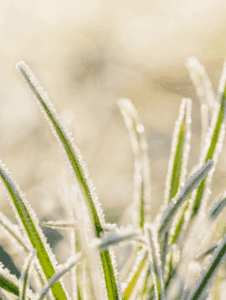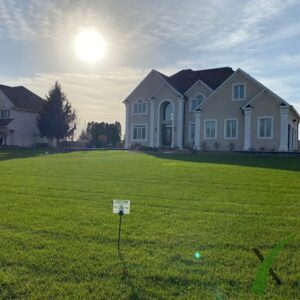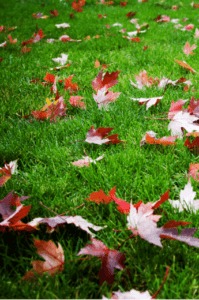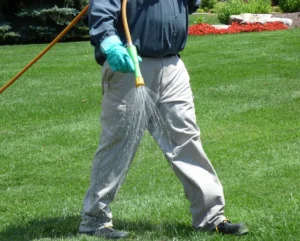Chicago Sod Lawns Turning Brown
Last November, literally after most grass had stopped growing, at least enough to mow, you had sod installed at your new home. Though it was cold, the lawn looked great; still vibrant and green. As spring arrived, the snow melted, and temperatures climbed into the 60s and 70s. And…surprise! Your new sod lawn had turned brown!
Had the lawn been killed off over the winter? Was it really dead? What could be done to save your not-so-inexpensive lawn investment? Let’s talk about how and why a new, late fall sodded lawn might turn brown. When our Chicago temperatures dipped below 20 degrees and stayed there for extended periods of time, the sod naturally went dormant. Not dead, dormant; asleep for the winter. If there was sufficient winter moisture, snow, or rain, a common disease known as snow mold could have taken over the lawn. Tell-tale signs in the spring would include small and larger gray patches, often but not always circular in shape. If that was your problem, a light raking and fertilizer is the solution.



If no winter/spring diseases were active, the new sod would still be subject to serious browning due to a lack of adequate root growth after the sod was laid. When sod is cut and transported to the lawn site, the roots are necessarily gone; removed in the cutting process in the sod field. Until roots are stimulated and re-establish, a process that takes literally months, grass plants may not be able to take up vital water and nutrients. When that happens, you have a slowly dying, brown lawn. Solution, fertilizer and water! And that might well have happened at your home.
Sodding, is not an automatic solution to establishing a new lawn. Yes, it covers the bare ground, construction debris, and mud. Still, until the roots are firmly established, new sod requires extra care and maintenance. So, when a new sod lawn comes out of winter brown; no surprise. Recommendation; a program of regular fertilization and, especially if the lawn is comprised of mostly Kentucky bluegrass, lots of regular watering in lieu of rainfall.



Join Our Free Lawn Care Newsletter
Stay Up to Date With The Latest News & Updates
* We don’t share your info with anyone ever.






